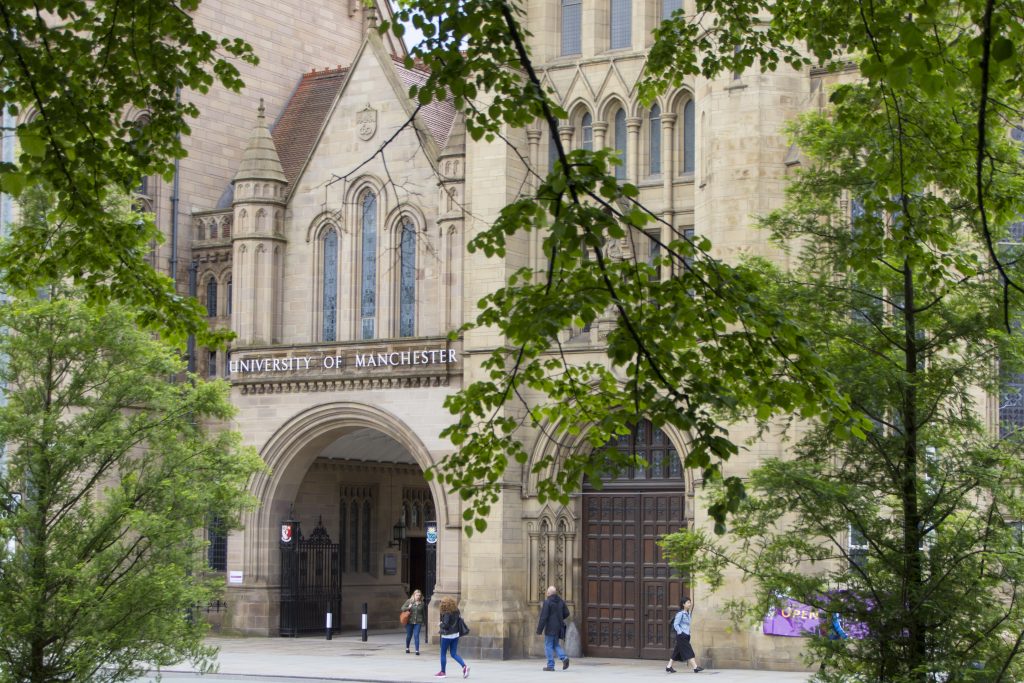
In profile: Amy Bradley
 I’m Amy, the Network Administrative Officer for the Stroke-IMPaCT Network.
I’m Amy, the Network Administrative Officer for the Stroke-IMPaCT Network.
I joined the Network in March 2021 and I’ve loved spending the last couple of months getting to know the members of the network (virtually of course!) and learning about the research done by the team since they started work in January 2020.
Most of the profiles and blogs on these webpages will come from the researchers in the network. As someone with a slightly different role, I wanted to introduce myself, explain what I find so exciting about the project, and share some insight into what I do day to day.
What do I find exciting about the Stroke-IMPaCT Network?
As an undergraduate and postgraduate biology student, I’m fascinated by the idea that the nervous and immune systems influence each others’ function in health and disease. Neuroimmunology – the combined study of the nervous and immune systems – is a relatively new area of scientific investigation. For a long time, people didn’t think that immune cells could even enter the brain.
I think it is remarkable that researchers are now looking at how the two systems communicate with each other in the hope that this may help us cure and/or prevent disease! This is exactly what the Stroke-IMPaCT Network are doing – trying to understand how immunological changes caused by a stroke may contribute to a person developing cognitive decline or dementia.
The other exciting aspect of the Stroke-IMPaCT Network is that the researchers are conducting clinical (patient) and pre-clinical (laboratory) research simultaneously. Pre-clinical research is essential for scientists to test hypotheses, explore ideas and conduct early trials of treatments that may help cure or prevent stroke-associated cognitive decline.
However, researchers also need to look at the blood and brains of people who have had a stroke (clinical research) to see what is happening, so that they focus on the right things in their pre-clinical research.
The researchers also need to perform clinical research to work out if the things that they have found in the laboratory could make a real difference to stroke survivors.
What do I do day to day?
My role is very diverse, but broadly involves me making things as easy as possible for the researchers in the network to do the work they’re so passionate about and help them to get the most out of this exciting collaboration.
A huge privilege of my job is attending the meetings and seminars in which the research ideas are generated, results presented and implications discussed. I get to listen as ground-breaking scientific ideas take shape and learn how the research is progressing.
I also support the Stroke-IMPaCT Network and other academics at The University of Manchester to conduct clinical research. Clinical research is very tightly regulated; there are many stages of administration to go through before, during and after the research study. This includes gaining ethical approval, ensuring that all participant information is kept confidential, storing samples in a way that is compliant with UK legislation, training research nurses in specific study requirements, conducting follow-up interviews with research participants… The list goes on.
It is essential that clinical research is well co-ordinated and managed for many reasons. One is participants having confidence that they and their data are safe and treated with dignity and respect. A second is that well-coordinated and managed clinical studies are critical for the generation of reliable results that enable researchers to continue confidently in their work to treat human diseases.
Even though I’d previously worked in a research environment, I didn’t realise quite how much goes on behind the scenes to help keep research happening!
Why do I feel this work is so important?
Naturally, the impact that the work of the Stroke-IMPaCT Network could have on so many stroke survivors is the reason for this research being so critical. I also have personal experience of the life-changing impact of this sort of research: as a postgraduate student I acquired a condition called Functional Neurological Disorder (FND), and required significant treatment and rehabilitative support.
FND affects different people in different ways. For me, FND meant that I would suddenly lose the ability to walk and move in a reliable and predictable way for up to weeks at a time: one moment I’d be OK, the next I’d be struggling to walk or sometimes even crawl. I also experienced a great deal of pain, muscle spasms, fatigue that meant I needed to sleep for up to 20 hours a day, and lost some of my cognitive function, making reading and remembering things a challenge.
Unlike many people with FND, I have been lucky to have access to specialist treatment and rehabilitation and, gradually, over the last five years, have slowly and significantly improved to the point that I have been able to work again.
The symptoms I have experienced are similar to some of those experienced by survivors of stroke. Knowing how frustrating and upsetting these sorts of symptoms are and the enormous impact they have on one’s life makes me even more motivated to support a team that is trying to solve the problem.
Without discoveries made by people like those participating in the Stroke-IMPaCT Network, and the volunteers in clinical research into FND, there wouldn’t have been treatments to support my recovery and help me to get back to what I love doing – science!
What’s next?
COVID-19 pressures on the NHS have meant that we’ve only just been able to start to recruit stroke survivors to our clinical research study at Salford Royal Hospital. However, the study is now up and running and we are so grateful to all the stroke survivors who have signed up to participate, our wonderful research nurses and our fantastic lab teams.
My colleague Sharon and I are still very busy, ensuring everything is running smoothly, planning for the next stage of the study and making sure that everyone is happy!
The Stroke-IMPaCT Network has still got a number of years left to continue their research and I, for one, am looking forward to being part of the journey and sharing updates and progress with you.






0 Comments